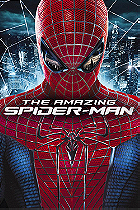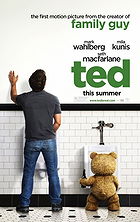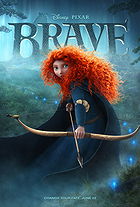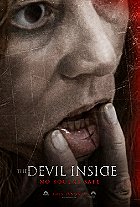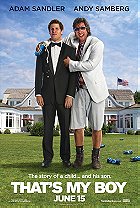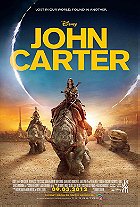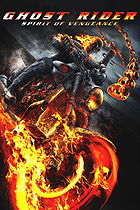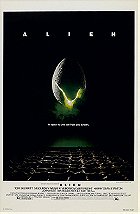Considering that 2009's Ice Age: Dawn of the Dinosaurs soared at the box office to become one of the highest grossing animated films in history, Ice Age 4 was inevitable. But the question looms: is there anything more that this franchise can offer with a fourth entry, a decade after the first Ice Age was released? The answer, alas, is no. Fox's Blue Sky genuinely tried to make a good movie with the first Ice Age since they needed to compete with Pixar and DreamWorks. Now that the Ice Age brand has been established and quality is no longer a concern, it seems nobody was committed to making a great movie with Continental Drift. As a result, it's not as bright, bubbly or witty as the movie which spawned it. It's an uninspiring continuation of a series sputtering on life support which hasn't been genuinely good in 10 years. It should be energetic and vibrant, yet it's almost completely flat, feeling more like a rote straight-to-DVD effort than a majestic theatrical movie.

As the film opens, ubiquitous sabre-toothed squirrel Scrat (Wedge) is still in pursuit of his beloved acorn, and his antics directly contribute to the titular tectonic event. With land being torn apart and the continents being formed, Manny (Romano), Diego (Leary) and Sid (Leguizamo) are separated from their herd, stranded in the ocean on a small iceberg. As they try to navigate a path home, the trio wind up battling the forces of mother nature on top of encountering a pirate ship captained by the malevolent Captain Gutt (Dinklage).
Written by newcomer Jason Fuchs and franchise veteran Michael Berg, Ice Age: Continental Drift slavishly follows the same formula of its predecessors: an event tears the characters apart and they face great adversity while trying to get home. Along the way, the characters learn a thing or two, and broken bonds are fixed. It's lazy, by-the-numbers filmmaking, and the script lacks the energy and wit to compensate for its narrative conventionality. Naturally, the story proper is sporadically interrupted by small segments spotlighting Scrat as he engages in his trademark acorn-related slapstick. Though Scrat's antics were spoiled in the trailers, they display the most amount of visual wit and inventiveness, serving to highlight just how unimaginative everything else is. The only other saving grace of Continental Drift is a pack of chipmunks who show up all-too-briefly. Aside from this, the flick is a lifeless slog which rarely emerges from its cinematic coma. The jokes are mostly flat and unremarkable, the banter is merely perfunctory, and the plot runs out of steam way before the climax. Worse, the "family is important" messages are hackneyed, and the problems of Manny's daughter Peaches (Palmer) seem to have been lifted from an after-school special.

At the very least, Continental Drift is impressive from a technical perspective. When Ice Age first hit cinemas in 2002, its CGI animation looked second-rate compared to Pixar and DreamWorks. But not anymore; the animation here is superb, resulting in the most visually satisfying instalment of the series. The water effects look especially photorealistic, and every hair is astonishingly rendered to make the characters look alive. (For the record, the incredible detail is more palpable in 3-D, but the 3-D presentation as a whole is overly unremarkable.) But while Continental Drift is a somewhat easy watch thanks to its visually succulent nature, there's no getting around the lack of intelligence and momentum. Ironically, last year's Ice Age Christmas special carried equally sumptuous animation, but its visual opulence was supplemented with genuine laughs and creativity; stuff that's lacking in Continental Drift. Ironically, too, the Simpsons short attached to this movie is endearing, smart, subtle and witty - precisely the things that Continental Drift is not.
It doesn't help that the protagonists have become stale and boring. Everyone was clearly operating on autopilot here, as it seems that none of the voice actors put much heart or effort into their performances. The only interesting characters here are the pirates. Led by the refreshingly sinister Captain Gutt (voiced with relish by the reliable Peter Dinklage), the ragtag team of elephant seals, kangaroos and prehistoric rabbits (Nick Frost even lends his voice here) are far more interesting than Manny, Sid and Diego. An entire movie centring on these colourful sea rats would be more enticing than an Ice Age 5. Considering all the terrific names in the cast - including Wanda Sykes, Patrick Stewart, Seann William Scott, Josh Peck and Jennifer Lopez - it's heartbreaking that all of this talent wasn't matched to something wittier or more heartfelt.

With its disheartening belly-laugh deficiency, it seems like nobody except the animators put much effort into Ice Age: Continental Drift. As a result, it has the feel of an arbitrary sequel that, given the last film's $900 million box office gross, it absolutely is. Kids with low standards may get a bit of a laugh, and it's harmless enough with lots of vivid colours, but adults have come to expect better from their family entertainment. Even the fourth Shrek film was more fun that this. Ice Age started as something original and creative, but it's time for this series to become extinct.
5.1/10
 Login
Login
 Home
Home 183 Lists
183 Lists 1671 Reviews
1671 Reviews Collections
Collections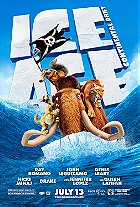
 0 comments,
0 comments, 